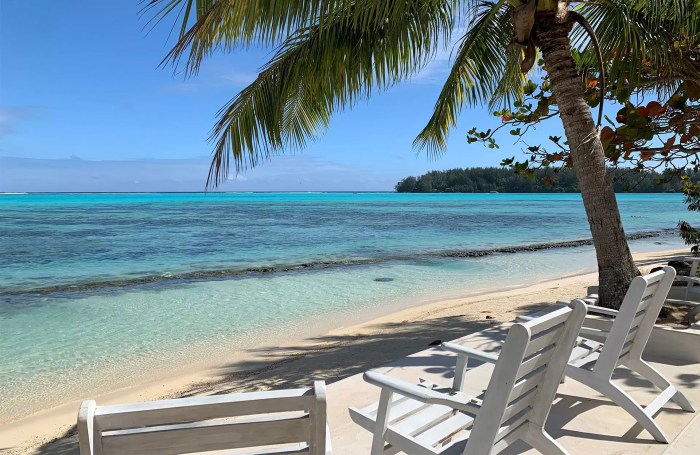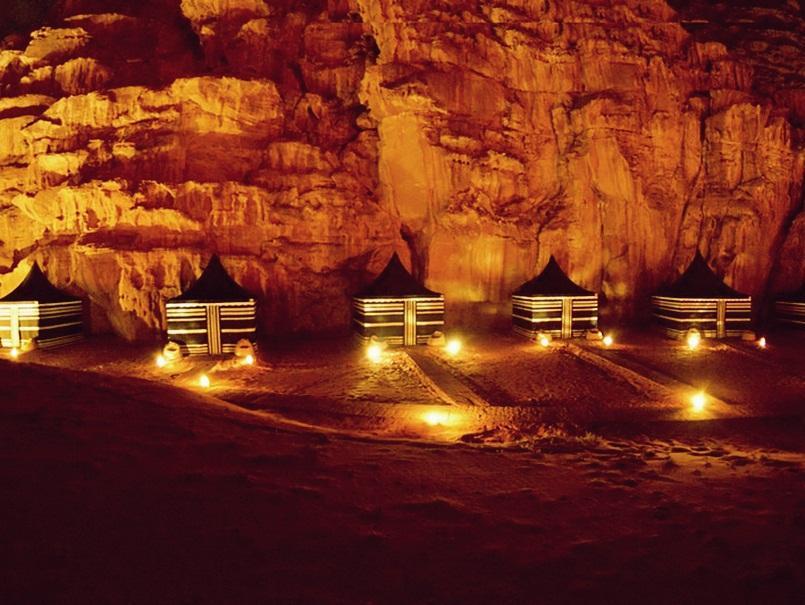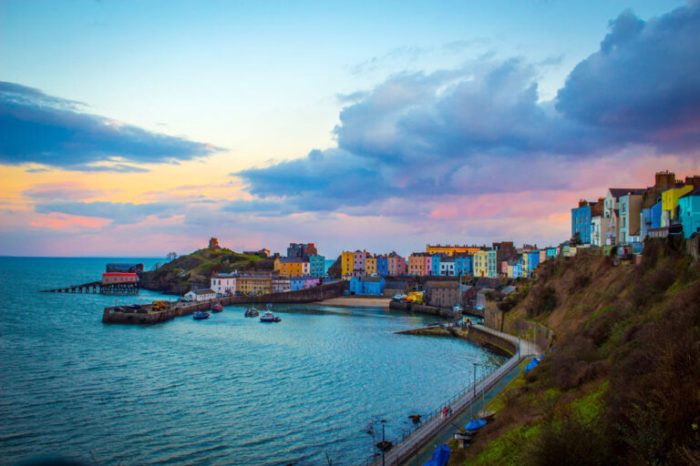Prepare yourself for an unforgettable nightlife experience as we delve into the world of best night clubs europe, a definitive guide to the most electrifying and unforgettable party destinations across Europe. From the pulsating dance floors of Ibiza to the underground scenes of Berlin, this comprehensive overview will ignite your desire to explore the vibrant nightlife that Europe has to offer.
With its rich tapestry of cultures, Europe boasts a diverse range of nightclubs, each offering a unique blend of music, ambiance, and experiences. Whether you seek the high-energy beats of techno or the soulful rhythms of house, this guide will lead you to the perfect clubbing destination.
Top-Rated Nightclubs in Europe
Europe is home to some of the world’s most vibrant and renowned nightclubs, offering an unforgettable nightlife experience for partygoers. Based on factors such as popularity, ratings, and awards, here’s a ranking of the top-rated nightclubs in Europe:
These nightclubs are known for their exceptional sound systems, world-class DJs, and stunning light shows, creating an immersive and unforgettable atmosphere for clubbers.
Berghain, Berlin, Germany, Best night clubs europe
- Berghain is considered one of the most influential and respected nightclubs in the world, known for its techno and house music.
- The club is housed in a former power station and features a vast, industrial-style space with multiple dance floors and a strict door policy.
- Berghain is renowned for its underground and experimental music scene, attracting a diverse crowd of clubbers from around the globe.
Ministry of Sound, London, UK
- Ministry of Sound is one of the most iconic nightclubs in London, known for its house and techno music.
- The club features a state-of-the-art sound system and a visually stunning interior, with multiple dance floors and VIP areas.
- Ministry of Sound has hosted some of the biggest names in electronic music and is known for its energetic and vibrant atmosphere.
Pacha, Ibiza, Spain
- Pacha is a legendary nightclub located on the party island of Ibiza, known for its electronic dance music.
- The club features a sprawling outdoor terrace, multiple dance floors, and a VIP area with stunning views of the Mediterranean Sea.
- Pacha is known for its world-class DJs, glamorous crowd, and unforgettable party atmosphere.
Amnesia, Ibiza, Spain
- Amnesia is another iconic nightclub on Ibiza, known for its techno and house music.
- The club features a massive main room with a cutting-edge sound system and an open-air terrace.
- Amnesia is known for its epic foam parties, lasers, and pyrotechnics, creating a surreal and electrifying experience for clubbers.
Zouk, Singapore
- Zouk is a multi-award-winning nightclub in Singapore, known for its diverse music genres and futuristic design.
- The club features multiple dance floors, a rooftop terrace, and a VIP area with exclusive amenities.
- Zouk is renowned for its cutting-edge light shows, immersive sound systems, and international DJs, offering a unique and unforgettable nightlife experience.
Nightclub Destinations in Europe
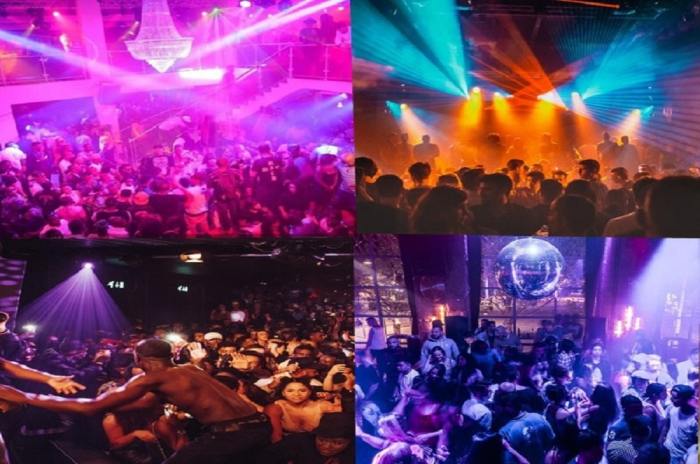
Europe is a continent with a vibrant and diverse nightlife scene, with cities across the region offering unique and unforgettable clubbing experiences. From the pulsating energy of Berlin to the glamorous clubs of Ibiza, there is a destination to suit every taste and preference.
Here are some of the most popular cities in Europe for nightlife and clubbing:
Berlin
Berlin is renowned for its thriving nightlife scene, with a vast array of nightclubs catering to diverse tastes. From techno clubs like Berghain and Tresor to hip-hop clubs like Yaam and KitKatClub, there is something for everyone in Berlin’s vibrant nightlife scene.
The city is known for its late-night parties and open-minded atmosphere, making it a popular destination for clubbers from around the world.
Ibiza
Ibiza is a party island in the Mediterranean Sea, known for its world-class nightclubs and electronic music scene. Clubs like Pacha, Amnesia, and Privilege host some of the biggest DJs in the world, and the island’s party atmosphere is legendary.
Ibiza attracts a diverse crowd of clubbers, from celebrities and jet-setters to young people looking for an unforgettable party experience.
London
London is a cosmopolitan city with a vibrant nightlife scene that offers something for everyone. From the exclusive nightclubs of Mayfair to the underground clubs of Shoreditch, there is a wide range of venues to choose from. London’s club scene is known for its eclectic mix of music, from house and techno to hip-hop and R&B, and it attracts a diverse crowd of locals and tourists alike.
Amsterdam
Amsterdam is a city with a rich history and a vibrant nightlife scene. The city is home to a wide range of nightclubs, from large-scale venues like Paradiso and Melkweg to smaller, more intimate clubs like De School and Shelter.
Amsterdam’s nightlife scene is known for its relaxed and tolerant atmosphere, and it attracts a diverse crowd of clubbers from all over the world.
Barcelona
Barcelona is a city with a vibrant nightlife scene that caters to all tastes. From the trendy clubs of the El Born district to the beach clubs of Barceloneta, there is something for everyone in Barcelona’s nightlife scene. The city is known for its late-night parties and its lively atmosphere, and it attracts a diverse crowd of locals and tourists alike.
Music Genres in European Nightclubs
The European nightclub scene is a diverse and vibrant one, with a wide range of music genres on offer. From the techno clubs of Berlin to the house music clubs of Ibiza, there’s something for everyone.The music scene in European nightclubs varies from city to city and club to club.
In general, however, the most popular genres of music in European nightclubs are techno, house, and trance. These genres are all characterized by their repetitive beats and electronic sounds, and they are perfect for dancing the night away.
Sub-genres of Electronic Dance Music (EDM)
- Techno: Originating in Detroit in the 1980s, techno is characterized by its repetitive four-on-the-floor beat, hypnotic melodies, and driving basslines. Techno is often played at high volumes in large warehouses or industrial spaces.
- House: House music emerged from Chicago in the early 1980s and is characterized by its four-on-the-floor beat, soulful vocals, and uplifting melodies.
House music is typically played at a slower tempo than techno and is often used for dancing.
- Trance: Trance music is a subgenre of electronic dance music that is characterized by its repetitive melodies, ethereal soundscapes, and driving basslines. Trance music is often played at large outdoor festivals and is known for its ability to induce a state of euphoria.
In addition to techno, house, and trance, there are a number of other popular genres of music played in European nightclubs. These include:
- Drum and bass: Drum and bass is a genre of electronic dance music that is characterized by its fast tempo, heavy basslines, and complex drum patterns. Drum and bass is often played at underground clubs and raves.
- Dubstep: Dubstep is a genre of electronic dance music that is characterized by its dark, heavy basslines and sparse melodies.
Dubstep is often played at underground clubs and raves.
- Hip hop: Hip hop is a genre of music that is characterized by its rapping, sampling, and scratching. Hip hop is often played at clubs that cater to a younger crowd.
- Pop: Pop music is a genre of music that is characterized by its catchy melodies and simple lyrics.
Pop music is often played at mainstream clubs that cater to a wide audience.
The music scene in European nightclubs is constantly evolving, and new genres are emerging all the time. However, the genres listed above are some of the most popular and enduring genres of music played in European nightclubs.
Nightclub Dress Codes and Ambiance
The dress code and ambiance of a nightclub can greatly impact the overall experience. In Europe’s top nightclubs, dress codes tend to be upscale and sophisticated, with guests expected to dress in formal or semi-formal attire. This creates an air of exclusivity and sophistication, setting the tone for a night of glamour and excitement.
The ambiance of these nightclubs is often opulent and luxurious, with plush furnishings, state-of-the-art lighting and sound systems, and a vibrant atmosphere. This combination of upscale dress code and sophisticated ambiance creates an immersive experience that transports guests into a world of extravagance and indulgence.
If you’re looking for a night out in Europe, there are plenty of great nightclubs to choose from. But if you’re also looking for a spiritual experience, you might want to consider a lourdes trip instead. Lourdes is a small town in France that is home to a famous shrine to the Virgin Mary.
Millions of people visit Lourdes each year to pray and to experience the healing waters of the shrine. While you’re in Lourdes, you can also visit the many churches and chapels in the town. And if you’re looking for a night out, there are a few bars and nightclubs in Lourdes where you can dance and have a drink.
Dress Code Variations
While most top nightclubs in Europe adhere to a strict dress code, there can be some variation depending on the specific club and the occasion. For example, some clubs may allow for more casual attire on certain nights, while others may have special events that require a more formal dress code.
- Formal Dress Code:Typically requires guests to wear formal attire such as suits, tuxedos, and evening gowns.
- Semi-Formal Dress Code:Allows for slightly more casual attire, such as dress pants and button-down shirts for men and cocktail dresses or skirts and blouses for women.
- Smart Casual Dress Code:A more relaxed dress code that permits jeans, dressy tops, and smart casual shoes.
It’s always advisable to check the dress code of the specific nightclub you plan to visit before arriving to avoid any potential issues or disappointment.
Impact on Experience
The dress code and ambiance of a nightclub can significantly influence the overall experience for guests. An upscale dress code can create a sense of exclusivity and sophistication, making guests feel like they are part of a special and privileged crowd.
The luxurious ambiance can enhance the experience further, providing a backdrop of glamour and excitement that makes the night out even more memorable.
Conversely, if guests are not dressed appropriately or the ambiance does not meet their expectations, it can detract from the overall experience. Feeling out of place or uncomfortable in the club can dampen the mood and make it difficult to fully enjoy the night.
Nightclub Prices and Packages
European nightclubs offer a wide range of prices for drinks and entry fees, depending on the venue, location, and night of the week. Generally, expect to pay around €10-€20 for a beer or cocktail, and €20-€50 for entry. Some clubs may offer special packages or deals, such as bottle service or VIP packages, which can include perks like table reservations, exclusive seating areas, and premium drinks.
Bottle Service
Bottle service is a popular option at many European nightclubs, particularly for larger groups or those looking for a more exclusive experience. Typically, you’ll purchase a bottle of spirits, which will be served at your table with mixers and ice.
The cost of bottle service varies depending on the club, the type of spirits, and the size of the bottle. Expect to pay around €150-€500 for a standard bottle of spirits.
VIP Packages
VIP packages offer a range of perks and privileges, such as priority entry, access to exclusive areas, and complimentary drinks or snacks. The cost of VIP packages varies depending on the club and the package itself. Expect to pay around €50-€200 for a VIP package.
Nightclub Safety and Security
European nightclubs prioritize safety and security to ensure a safe and enjoyable experience for patrons. They implement various measures to mitigate risks and maintain order.
Security Measures
-
-*Trained Security Staff
Nightclubs employ well-trained security personnel who are responsible for maintaining order, preventing disturbances, and responding to emergencies. They are often equipped with body cameras and communication devices.
-*ID Checks and Age Restrictions
To ensure compliance with legal age restrictions, nightclubs conduct thorough ID checks at the entrance. Underage individuals are not permitted entry.
-*Bag Checks and Metal Detectors
Many nightclubs implement bag checks and metal detectors to prevent the entry of weapons, drugs, or other prohibited items.
-*CCTV Surveillance
Nightclubs are equipped with comprehensive CCTV surveillance systems that monitor all areas of the venue, providing real-time footage for security staff and law enforcement.
-*Emergency Procedures
Nightclubs have established emergency procedures in place to handle various situations, including fires, medical emergencies, and crowd disturbances. Staff is trained to respond promptly and effectively.
Staying Safe
-
-*Be Aware of Your Surroundings
Pay attention to your surroundings and be mindful of suspicious individuals or activities.
-*Keep Valuables Secure
Keep your valuables close to you or use secure lockers provided by the nightclub.
-*Avoid Excessive Alcohol Consumption
Limit your alcohol intake to stay alert and avoid potential risks.
-*Stay with Friends
It’s advisable to attend nightclubs with friends and stay together throughout the night.
-*Trust Your Instincts
If you feel uncomfortable or unsafe, trust your instincts and leave the venue immediately.
-*Report Suspicious Activity
If you witness any suspicious behavior or activity, report it to security staff or law enforcement.
Nightclub Culture and Etiquette
Nightclubs in Europe offer a vibrant and diverse nightlife experience, each with its own unique culture and etiquette. Understanding and respecting these customs can enhance your clubbing experience and ensure a safe and enjoyable night out.
It’s important to dress appropriately for the club you’re visiting. While some clubs have a strict dress code, others are more relaxed. Generally, it’s best to err on the side of caution and dress in smart casual attire.
When entering the club, be prepared to pay a cover charge. This fee typically includes admission and a drink. Once inside, it’s customary to tip the bartender when ordering drinks. The amount of the tip is up to you, but a few euros is usually sufficient.
When dancing, be respectful of other clubgoers. Avoid pushing or shoving, and be mindful of your surroundings. If you’re feeling overwhelmed, take a break and head to the bar or lounge area.
Respect the Staff
The staff at nightclubs are there to ensure your safety and enjoyment. Be respectful of their authority and follow their instructions. If you have any questions or concerns, don’t hesitate to ask a member of staff for assistance.
Stay Safe
It’s important to stay safe when clubbing. Be aware of your surroundings and keep your belongings close to you. If you’re feeling unwell or uncomfortable, don’t hesitate to seek help from a member of staff.
Have Fun
Most importantly, don’t forget to have fun! Nightclubs are a great place to meet new people, dance the night away, and create lasting memories.
Unique Nightclub Experiences
Europe is renowned for its vibrant nightlife, boasting a plethora of nightclubs that offer unparalleled experiences. These venues push the boundaries of entertainment, featuring innovative concepts, captivating performances, and opulent amenities that create unforgettable memories for revelers.
Immersive Audiovisual Spectacles
Some nightclubs in Europe have invested heavily in state-of-the-art audiovisual technology to deliver immersive experiences. These clubs employ cutting-edge sound systems, dynamic lighting displays, and mesmerizing visuals that transport guests to otherworldly realms. The interplay of music, lights, and visuals creates a captivating sensory journey that leaves a lasting impression.
Interactive Performances
Many nightclubs in Europe feature live performances that go beyond traditional DJ sets. These performances may include aerialists, acrobats, dancers, and even immersive theater experiences. The performers interact with the audience, creating a dynamic and engaging atmosphere that blurs the lines between entertainment and art.
Themed Environments
Some nightclubs in Europe are known for their elaborate themed environments that transport guests to different eras, cultures, or even fictional worlds. These venues often feature intricate décor, immersive lighting, and costumed staff to create a fully immersive experience. Guests can step into the roaring 1920s, explore an ancient Egyptian temple, or dance beneath the stars in a celestial paradise.
Exclusive VIP Experiences
For those seeking an elevated nightlife experience, many nightclubs in Europe offer exclusive VIP packages. These packages may include private tables, bottle service, dedicated wait staff, and access to exclusive areas. VIP guests enjoy a luxurious and personalized experience, allowing them to celebrate in style and comfort.
Underground and Secret Venues
For those seeking a more intimate and off-the-beaten-path experience, Europe is home to a number of underground and secret nightclubs. These venues often operate in hidden locations, accessible only to those in the know. They offer a unique and authentic nightlife experience, showcasing emerging artists and alternative music genres.
Upcoming Nightclub Events
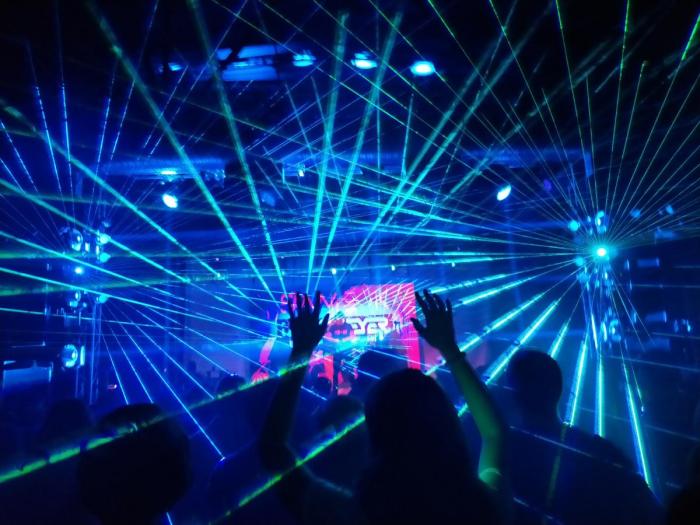
Upcoming events and parties at the best nightclubs in Europe offer an electrifying nightlife experience. From world-renowned DJs to captivating performers, these events promise an unforgettable night out.
To stay updated on the latest happenings, check the official websites or social media pages of the nightclubs. Here’s a sneak peek into some upcoming events:
DJ Mag’s Top 100 DJs Party
- Date:March 11, 2023
- Venue:Ministry of Sound, London
- DJs:Martin Garrix, Dimitri Vegas & Like Mike, Hardwell
- Ticket prices:£40 – £80
Tomorrowland Winter
- Date:March 18-25, 2023
- Venue:Alpe d’Huez, France
- Performers:Armin van Buuren, Martin Solveig, Afrojack
- Ticket prices:€350 – €1,200
Ultra Europe
- Date:July 7-9, 2023
- Venue:Poljud Stadium, Split, Croatia
- DJs:David Guetta, Kygo, Alesso
- Ticket prices:€150 – €400
Nightclub Reviews and Recommendations
Reading reviews and recommendations from travelers and locals who have experienced the nightlife scene in Europe can provide valuable insights into the best nightclubs to visit. These reviews can offer firsthand accounts of the atmosphere, music, crowd, and overall experience at different clubs.
When planning a night out, it’s helpful to consider the following factors:
- Music genre:Nightclubs in Europe offer a wide range of music genres, from electronic dance music (EDM) to hip-hop, techno, and house. Choose a club that aligns with your musical preferences.
- Ambiance and atmosphere:The ambiance of a nightclub can greatly impact the experience. Some clubs have a more intimate and cozy atmosphere, while others are known for their large dance floors and high-energy crowds.
- Dress code:Most nightclubs in Europe have a dress code, ranging from casual to formal. It’s important to check the dress code before going to avoid being denied entry.
- Prices and packages:Nightclub prices vary depending on the location, popularity, and amenities offered. Some clubs offer package deals that include drinks or VIP access.
- Safety and security:Safety should be a priority when going to a nightclub. Choose a club that has good security measures in place, such as bouncers, security cameras, and a safe environment.
By considering these factors and reading reviews and recommendations, you can plan a night out at a nightclub that meets your expectations and provides a memorable experience.
Nightclub Resources and Information
Planning a night out at a European nightclub can be an exciting but daunting task. With so many options available, it’s important to do your research and plan ahead to ensure a safe and enjoyable experience.
Here are some resources and tips to help you navigate the European nightclub scene:
Websites and Apps
- Resident Advisor: A comprehensive website and app that provides listings, reviews, and tickets for nightclubs worldwide, with a strong focus on European clubs.
- Discotech: An app that offers personalized recommendations and bookings for nightclubs in major European cities.
- Xceed: A website and app that provides information on nightclubs, events, and tickets, with a focus on electronic music.
Transportation
Most European nightclubs are located in city centers or easily accessible areas. Public transportation is often the most convenient and affordable way to get to and from the club.
If you’re planning on taking a taxi, make sure to arrange for a ride back at the end of the night, as taxis can be scarce in the early hours of the morning.
Staying Updated
To stay up-to-date on the latest events and promotions, follow your favorite nightclubs on social media or subscribe to their newsletters.
Many nightclubs also have websites or apps where you can check for upcoming events and purchase tickets.
Final Summary
As you embark on your European nightlife adventure, remember to embrace the local culture, dress to impress, and prioritize your safety. By following these tips, you can immerse yourself in the vibrant nightlife scene and create memories that will last a lifetime.
Europe awaits, with its doors wide open, ready to welcome you into a world of unforgettable clubbing experiences.
FAQ Overview: Best Night Clubs Europe
What are the most popular nightclubs in Europe?
The popularity of nightclubs varies depending on the city and region. However, some of the most renowned and frequently visited nightclubs in Europe include Amnesia and Pacha in Ibiza, Berghain and Tresor in Berlin, Fabric and Ministry of Sound in London, and DC10 and Razzmatazz in Barcelona.
Which European cities are known for their vibrant nightlife?
Europe is home to numerous cities that are renowned for their exciting nightlife scenes. Some of the most popular destinations for clubbers include Ibiza, Berlin, London, Barcelona, Amsterdam, Paris, and Mykonos.
What are the typical dress codes for European nightclubs?
Dress codes vary depending on the specific nightclub and the occasion. However, it is generally advisable to dress smartly and avoid casual attire such as shorts, flip-flops, or sportswear. Some clubs may have a more formal dress code, so it is always a good idea to check the club’s website or social media pages for specific guidelines.
